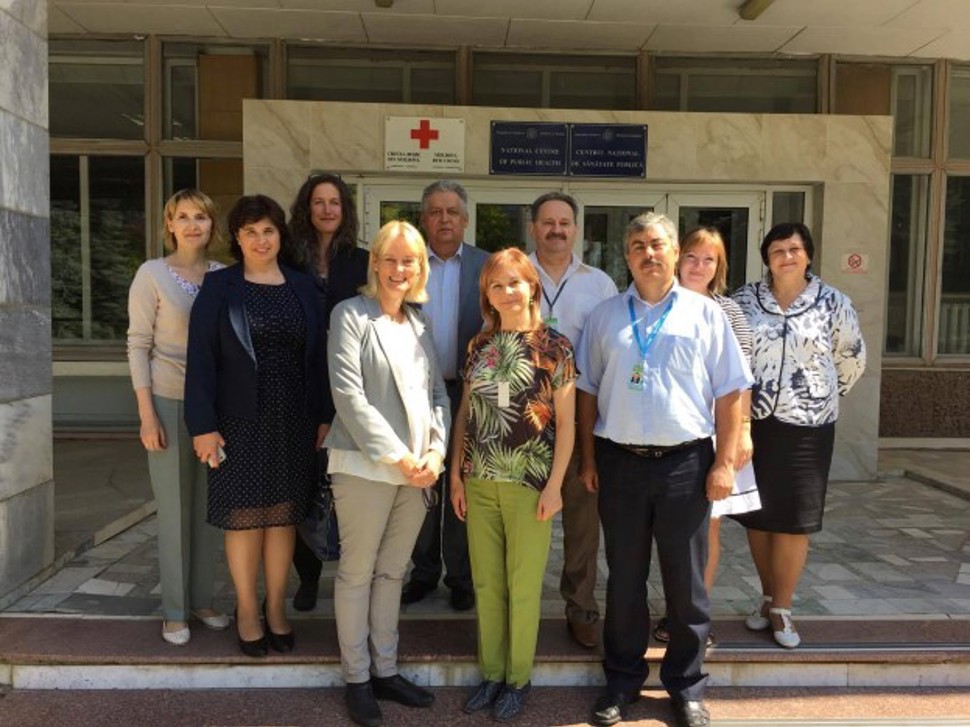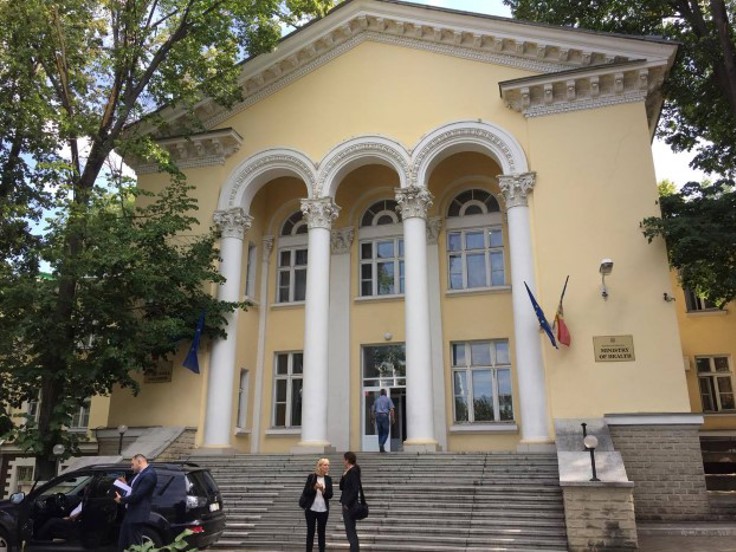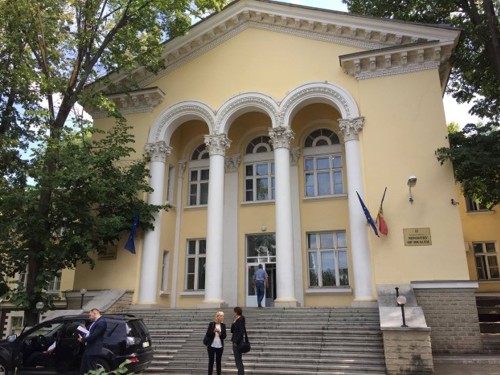The Global Health Preparedness Project in Moldova
Article
|Updated
It started by developing National Emergency Preparedness and Response Plan, enhancing the national integrated surveillance system, developing antimicrobial stewardship program including infection prevention measures, and concluded by strengthening national chemical preparedness.
Republic of Moldova
Moldova is a landlocked country in Eastern Europe situated between Romania and Ukraine. The high consumption of alcohol and tobacco in the country is a main public health concern. Since its independence in 1991, Moldova has been facing several economic, social and health challenges. The national trends of infectious and noncommunicable diseases burden have been steadily increasing. The main causes of death in the republic of Moldova are cardiovascular diseases, cancer and followed by respiratory infections.1
Norwegian and Moldovan health authorities have supported collaboration in the public health field in several years. In 2014, the Norwegian Ministry of Health and Care Services signed a Memorandum of Understanding (MoU) with the Moldovan Ministry of Healthcare, which provided the framework for cooperation between the Moldovan Public Health Institute (NCPH) in the capital city Chisinau and NIPH.

NIPH explored further areas for collaboration with NCPH on preparedness and IHR implementation, where the GHPP came into action. After consultation with national authorities in Moldova, developing national capacities of emergency response, antimicrobial resistance, and biosafety and biosecurity were prioritised for collaboration. Since NIPH did not have a local contract partner in Moldova, project was mainly financed directly from Norway. In the latter part of the project period, a collaboration agreement was signed with WHO Country Office and proved especially useful during the pandemic.
Achieved results
The initial stage of launching GHPP in Moldova was characterised with several brainstorming-explorative workshops, including study excursions to NIPH in Oslo and table-top exercises, to identify some of the bottlenecks in advancing public health services. It was marked by a close collaboration with newly established national IHR focal point. During the JEE which GHPP supported, the collaboration with Norway was repeatedly highlighted as important for Moldovan IHR development by Moldovan authorities. GHPP assisted in developing Moldovan National Emergency Preparedness and Response Plan (NEPRP). In addition, it funded the renovation of the national Emergency Operation Centre with procurement of audio-visual equipment, supported the development of Standard Operating Procedures for the IHR focal point and national guidelines for chemical risk assessment which were implemented in 2020.
In the area of knowledge exchange and capacity building, the project worked closely with Moldovan partners to develop and implement Point Prevalence Surveys (PPS) to measure healthcare associated infections and antimicrobial use, and in developing national guidelines for chemical risk assessments. Additionally, the project assisted in developing an algorithm for diagnosing dangerous pathogens, including molecular methods, which were further adopted in mitigating the pandemic. Furthermore, GHPP assisted the Moldovan authorities to develop their national risk communication plan for COVID-19 based on multisectoral engagement with various national stakeholders.
End user experience
In her remarks during the closing seminar of the GHPP, Dr Stella Gheorghita – National emergency officer at WHO CO, Moldova – named the following developments as strategic milestones for the GHPP:
- Infrastructure development was mainly focused on strengthening the national IHR focal point functions of multisectoral collaboration and coordination.
- Exchanging expertise in developing intervention prevention measures for hospital acquired infections.
- Developing competences of early warning and efficient surveillance system which proved to be useful in mitigating the ongoing pandemic.
An exceptional milestone of the GHPP was to develop national guidelines for chemical preparedness and biosafety and biosecurity.
- Dr Stella Gheorghita – National emergency officer at WHO CO, Moldova
Lessons learned
- National ownership driven by political leadership who sets national priorities is crucial for the progress of twinning programmes.
- Networking with identified public health stakeholders is important to understand country dynamics and vulnerabilities and investing in long-term engagements could eventually counter political polarization.
- Expanding the collaborative model to include international organisations such as WHO could be a way forward.

